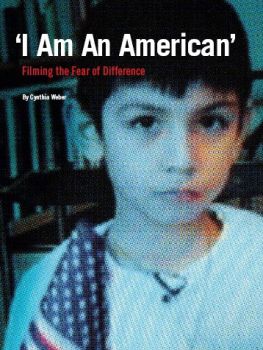Book commemorates 9/11 by questioning what it means to say “I am an American”
By: James Hakner
Last updated: Thursday, 25 August 2011

Shortly after the events of 9/11, a Public Service Announcement was broadcast on US television in which American citizens of different ages, races, religions and ethnicities each proudly proclaimed 'I am an American'.
The campaign, intended to restore a sense of unity in America in the wake of the terrorist attacks, inspired Cynthia Weber, now a professor of International Relations at Sussex, to explore this statement.
This year sees the publication of her book, 'I am an American' Filming the Fear of Difference, which is both a political and a personal odyssey. The book developed from a multi-media project in which she interviewed and filmed her own selection of US citizens from all walks of life, many of whom continued to experience personal prejudice as a result of the continuing 'war on terror' US policy.
As she explains in the introduction: "For all its good intentions, the 'I am an American' PSA did not prevent a backlash against minority populations in the US after the terrorist attacks, nor did it articulate the full breadth of sentiment at play in the post-9/11 US....What became apparent was that the seemingly simple declaration 'I am an American' is fraught with complications and paradoxes, particularly when it is meant to express citizenship, identity, tolerance, nationalism, patriotism and justice.'
Among her interviewees were a Mexican-born retired US marine, who was only granted citizenship after being injured in Iraq, and US army Muslim chaplain James Yee, who was detained by the US government as an enemy combatant. The 14 films Professor Weber made will be in the permanent collection of the September 11 Memorial Museum when it opens next year at the site of the former World Trade Center in New York City and will be available to view online. Today, six films can be viewed on YouTube.
The book is also a personal memoir. Professor Weber, who was living in the UK at the time of the attacks, remembers that she had returned to America shortly after 9/11 to attend the funeral of a favourite aunt. The PSA film was playing at the time and she recognised that her family's grief for her aunt was reflected in a nation's outpouring. "This is what troubles me about the PSA,' she writes. "I see in it a call for US citizens to do the very same thing in relation to the US nation that my family is doing in relation to my aunt - remember only what is good, don't be too critical especially now, take comfort from flawed memories if these help us regroup at this difficult moment."
Now, 10 years later, Professor Weber feels that these memories should be put into context. "We must remember September 11 as fully as we can, including some of the ways the US government and US citizens behaved in the aftermath that we US citizens would rather forget. These troubling memories are important because how we remember September 11 influences how the US defines itself today and in the future as a nation and a people."

